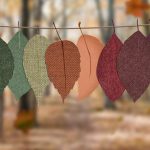So, you want to master the art of selecting the best thread specifications for fabrics. Understanding the intricacies of thread weight, composition, and construction is crucial. Factors such as fabric type and specialty materials also play a significant role.
This guide will provide you with clear and detailed insights into the optimal thread specifications for various fabrics. From practical tips to the impact of thread characteristics, you'll gain the knowledge needed to make informed decisions.
Let's delve into the world of thread specifications and elevate your mastery in fabric craftsmanship.
Key Takeaways
- Thread weight is important for the overall look and strength of stitches, with heavier thread needed for stronger fabrics and finer thread for delicate fabrics.
- Matching thread weight to fabric type is crucial for optimal stitch quality and durability.
- Thread composition, such as natural or synthetic materials, and thread construction, such as twist level and thickness, impact stitch quality and durability.
- Specialty fabrics require specific thread types that complement their unique characteristics, such as durable threads for leather and water-resistant threads for neoprene.
Importance of Thread Weight
Choosing the right thread weight is critical for ensuring the quality and durability of your fabric projects. Thread weight refers to the thickness of the thread, and it plays a crucial role in determining the overall look and strength of your stitches.
When the thread weight is too heavy for the fabric, it can cause excessive thread tension, leading to puckering and distortion of the fabric. On the other hand, if the thread weight is too light, it may not provide sufficient strength, compromising the stitch quality and durability of the project.
To achieve optimal stitch quality, it's essential to match the thread weight with the fabric type and the intended use of the project. For example, heavier fabrics such as denim or upholstery materials may require a thicker thread to ensure adequate strength and durability. In contrast, delicate fabrics like silk or chiffon necessitate a finer thread to maintain a smooth and elegant finish without causing damage to the fabric due to excessive thread tension.
Understanding the relationship between thread weight, thread tension, and stitch quality is fundamental to mastering the art of sewing and creating impeccable fabric projects.
Understanding Thread Composition
Understand how thread composition impacts the strength and appearance of your stitches when working with different fabrics. The materials used to make threads greatly influence their characteristics, which in turn affect the quality of your sewing projects. Here's what you need to know:
- Natural Threads: Threads made from natural materials like cotton, silk, and wool are known for their softness and ability to blend well with natural fabrics. They're ideal for lightweight fabrics and create smooth, even stitches.
- Synthetic Threads: Polyester and nylon threads are popular choices due to their durability and resistance to stretching and shrinking. They work well with a variety of fabrics, especially those that undergo frequent washing and wearing.
- Blended Threads: Blending natural and synthetic materials results in threads that offer the best of both worlds. These threads are often stronger and more versatile, making them suitable for a wide range of fabric types.
Understanding the characteristics of different thread materials will help you select the most appropriate thread for your sewing projects, ensuring strong, high-quality stitches that enhance the overall appearance of your finished items.
Impact of Thread Construction
When considering the impact of thread construction on fabrics, it's important to look at thread strength and durability.
The type of thread used can significantly influence the overall performance and lifespan of the fabric.
Understanding how different thread constructions affect these aspects will help you make informed decisions when selecting the best thread specifications for your fabrics.
Thread Strength and Durability
To ensure optimal thread strength and durability in fabrics, prioritize the impact of thread construction on their performance. Thread tension and fabric compatibility play a crucial role in determining the overall strength and durability of the fabric. Here's how thread construction affects the strength and durability of fabrics:
- Twist Level: The twist in the thread affects its strength, with a higher twist generally resulting in stronger and more durable seams.
- Thread Size: Thicker threads tend to be stronger and more durable compared to thinner threads, especially when used with appropriate sewing techniques.
- Thread Material: Different thread materials, such as cotton, polyester, or nylon, have varying levels of strength and durability, influencing the overall fabric performance.
Understanding these aspects of thread construction is essential for selecting the best thread specifications to ensure the strength and durability of fabrics.
Influence on Fabric Performance
The impact of thread construction on fabric performance is crucial to achieving optimal strength and durability in your sewing projects. Thread tension greatly influences fabric drape, affecting how the fabric hangs and moves. Moreover, thread elasticity plays a key role in fabric breathability, allowing for comfortable wear. Understanding these impacts will help you choose the right thread construction for your desired fabric performance.
| Thread Construction | Fabric Performance |
|---|---|
| Thread Tension | Fabric Drape |
| Thread Elasticity | Fabric Breathability |
Consider these factors when selecting thread specifications to ensure that your sewing projects not only look great but also have the desired strength, drape, and breathability.
Matching Thread to Fabric Type
Select the appropriate thread based on the type of fabric you're working with to ensure the best results. When matching thread to fabric type, consider the following:
- Thread color, matching: Choose a thread color that closely matches the fabric. When the thread color matches the fabric, it helps to create seamless and nearly invisible stitches. If an exact match isn't available, opt for a slightly darker shade rather than a lighter one to prevent the stitches from standing out.
- Thread tension, adjusting: Different fabric types require adjustments in thread tension. For lightweight fabrics such as chiffon or silk, lower the tension to prevent puckering or pulling. Conversely, heavier fabrics like denim or canvas may require higher tension to ensure secure and balanced stitches. Always test the tension on a scrap piece of fabric before starting your project to achieve the best results.
- Thread material, selecting: Consider the material of the fabric when selecting the thread. For natural fabrics like cotton or linen, use cotton thread, as it will blend well and provide durability. Synthetic fabrics such as polyester or nylon are best paired with polyester thread for strong and resilient seams. Matching the thread material to the fabric type enhances the overall quality and longevity of the finished garment or project.
Considerations for Specialty Fabrics
When working with specialty fabrics, it's crucial to consider the unique characteristics of the material. Specialty fabrics may require specific thread types to accommodate their unique properties, such as stretch, sheen, or texture.
Matching the thread to the specialty fabric ensures optimal performance and durability for the finished product.
Specialty Fabric Thread
Considering specialty fabrics, you should choose thread that matches the unique qualities of the material. When working with specialty fabrics, it's crucial to pay attention to the thread color, as it should complement the fabric's distinct characteristics.
Additionally, thread tension plays a vital role in ensuring the proper handling of specialty fabrics, preventing any damage or distortion. The tension should be adjusted to accommodate the specific nature of the fabric, whether it's delicate, stretchy, or textured.
Lastly, the thickness of the thread needs to be carefully considered to ensure it aligns with the weight and weave of the specialty fabric, promoting both the aesthetic and structural integrity of the final product.
Unique Fabric Thread
To achieve optimal results when working with specialty fabrics, prioritize thread compatibility based on the fabric's unique qualities.
When working with specialty fabric options such as leather, suede, or neoprene, it's essential to consider thread selection techniques that align with the specific properties of these materials.
For example, leather and suede require threads that can withstand the heavy-duty nature of these fabrics, so opt for durable threads like polyester or nylon.
Neoprene, on the other hand, necessitates threads that can withstand exposure to water and resist deterioration, making bonded nylon or polyester threads suitable choices.
Understanding the unique characteristics of specialty fabrics and matching them with appropriate thread selection techniques is crucial for achieving high-quality and long-lasting results in your sewing projects.
Thread for Specialty
For specialty fabrics, you should select a thread that complements their unique properties and can withstand their specific demands. When choosing a thread for specialty fabrics, consider the following:
- Specialty Fabric Compatibility: Ensure that the thread you choose is compatible with the specialty fabric's composition, such as delicate silk or stretchy spandex. Different fabrics require different thread properties to ensure optimal performance and longevity.
- Thread Color Selection: The color of the thread should complement the specialty fabric's color and texture. For specialty fabrics with unique patterns or sheens, carefully selecting the thread color can enhance the overall appearance of the garment or product.
- Thread Strength and Durability: Specialty fabrics often have distinct characteristics, such as being delicate or heavy-duty. Select a thread that provides the necessary strength and durability to withstand the specific demands of the specialty fabric.
Practical Tips for Thread Selection
When selecting thread for your fabric, you should consider the weight and fiber content of the material. Thread tension is crucial for a professional finish. Matching the color of the thread to your fabric is essential for a seamless look. If an exact match isn't available, choose a slightly darker shade rather than a lighter one.
Additionally, consider the fiber content of the fabric. Natural fibers such as cotton or silk require threads with similar properties to ensure compatibility and prevent damage to the fabric. For synthetic fabrics like polyester, choose threads with a bit of stretch to accommodate the fabric's flexibility.
It's also important to assess the intended use of the fabric. For garments that will undergo frequent washing, opt for threads that are colorfast and resistant to shrinkage.
Frequently Asked Questions
Can Different Thread Specifications Affect the Drape of the Fabric?
Different thread specifications can significantly affect the drape of the fabric. Thread tension, thread count, and fabric texture all play a role. Understanding how these elements interact will allow you to optimize the drape of your fabric.
How Does Thread Twist Affect the Durability of the Fabric?
Thread twist plays a crucial role in fabric strength. A higher twist results in a stronger fabric, while lower twist allows for greater flexibility. Adjusting thread tension can also impact the fabric's flexibility, providing the desired characteristics for different applications.
What Are the Best Thread Specifications for Waterproof or Water-Resistant Fabrics?
For waterproof fabrics, prioritize thread strength, typically measured in denier. Higher denier threads offer greater durability and water resistance. For water-resistant fabrics, consider polyester or nylon threads for their moisture-wicking properties and resistance to mildew.
Can Using a Different Thread Weight Affect the Texture of the Fabric?
Using a different thread weight can affect the texture of the fabric. It impacts the fabric's drape and feel. Consider color options and thread tension for texture variation. Also, thread material and fabric strength play crucial roles.
Are There Specific Thread Specifications for Stretch or Knit Fabrics?
When sewing stretch or knit fabrics, it's important to consider thread elasticity and fabric construction. Using the right thread tension is crucial for maintaining the fabric's stretchability and ensuring a durable final product.
- How Does Ring Spun Cotton Affect Garment Fit and Shape Retention? - August 13, 2024
- What Are the Challenges in Producing Ring Spun Cotton? - August 13, 2024
- Is Ring Spun Cotton Suitable for Plus-Size Clothing? - August 13, 2024




